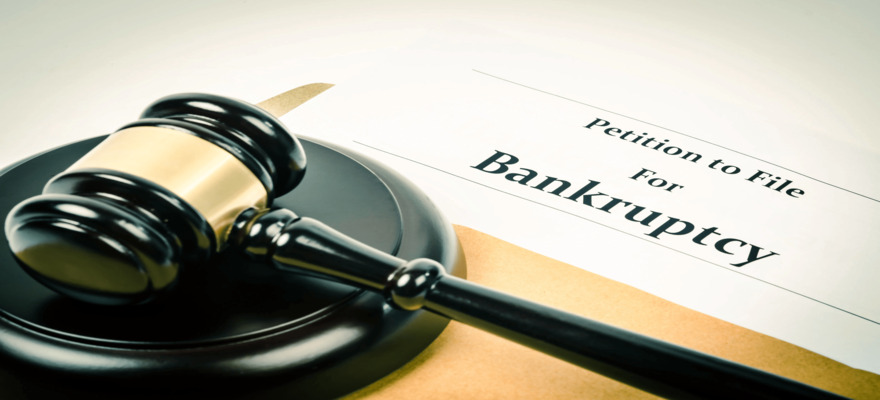
What is Federal Bankruptcy Fraud?
Bankruptcy fraud refers to the act of deliberately and dishonestly concealing, transferring or misrepresenting assets or financial information in order to manipulate the bankruptcy process for personal gain or to defraud creditors. It is considered a serious white-collar crime and is subject to both civil and criminal penalties.
Bankruptcy fraud can take various forms, including:
Concealment of assets: Intentionally hiding or failing to disclose assets that should be part of the bankruptcy estate, such as money, property, or valuable possessions.
False statements or omissions: Providing false information or omitting crucial financial details in bankruptcy documents or during bankruptcy proceedings.
Multiple filings: Filing for bankruptcy in different states or jurisdictions simultaneously to double the benefits or conceal assets.
Bribery or collusion: Attempting to bribe a court-appointed trustee or colluding with others to manipulate the bankruptcy process.
Falsification of records: Creating fake financial records or altering existing records to deceive the bankruptcy court and creditors.
Identity theft: Assuming a false identity or using someone else’s identity to file for bankruptcy fraudulently.
Penalties
When discovered, bankruptcy fraud can lead to severe consequences, including fines, imprisonment, and denial of bankruptcy discharge.
Imprisonment: Perpetrators of bankruptcy fraud can face imprisonment. The length of the sentence can range from a few months to several years, depending on the severity of the fraud and the number of counts convicted.
Fines: Individuals found guilty of bankruptcy fraud may be required to pay fines. The fines can be substantial and are intended to serve as a financial penalty for fraudulent actions.
Restitution: Courts may order the convicted individual to pay restitution to the victims of the fraud. This involves reimbursing any losses suffered by creditors due to fraudulent actions.
Probation: In some cases, instead of imprisonment, a convicted individual may be placed on probation, during which they are required to adhere to specific conditions set by the court. Failure to comply with probation terms can lead to further penalties.
Asset Forfeiture: Assets obtained through fraudulent means can be seized by the government as part of the punishment.
Ineligibility for Bankruptcy Discharge: If the fraud was committed to abuse the bankruptcy system, the court may deny the individual’s discharge of debts. This means the person will still be liable for their debts even after bankruptcy proceedings.
Loss of Civil Rights: In certain cases, a conviction for bankruptcy fraud can result in the loss of certain civil rights, such as the right to vote, the right to possess a firearm, or the right to hold public office.
It’s important to note that bankruptcy fraud investigations are typically conducted by the United States Trustee Program, the Federal Bureau of Investigation (FBI), or other law enforcement agencies. The consequences can be severe, and individuals charged with bankruptcy fraud have the right to legal representation during the legal process.
What Does a Bankruptcy Fraud Criminal Defense Attorney Do?
A bankruptcy fraud criminal defense attorney is a legal professional who represents individuals or businesses accused of committing bankruptcy fraud. Bankruptcy fraud occurs when a debtor intentionally provides false or misleading information during the bankruptcy process to deceive creditors, the court, or the bankruptcy trustee. This fraudulent behavior can involve concealing assets, inflating expenses, or falsifying documents to manipulate the outcome of the bankruptcy case.
The Role of a Bankruptcy Fraud Criminal Defense Attorney Includes the Following:
Legal counsel: The attorney advises their client on the applicable laws, regulations, and potential consequences of bankruptcy fraud charges. They help the client understand their rights and options throughout the legal process.
Case evaluation: The attorney will carefully examine the details of the case, reviewing all relevant documents and evidence related to the bankruptcy filing. This evaluation helps them understand the strengths and weaknesses of the prosecution’s case and helps formulate a defense strategy.
Develop a defense strategy: Based on the case evaluation, the attorney will devise a defense strategy tailored to the specific circumstances of the client’s case. This may involve gathering evidence, interviewing witnesses, and conducting legal research to build a strong defense.
Negotiation: In some cases, the defense attorney may negotiate with the prosecution or the bankruptcy trustee to reach a plea deal or settlement, depending on the circumstances and evidence presented.
Court representation: If the case goes to trial, the defense attorney will represent their client in court. They will present arguments, cross-examine witnesses, and make motions to defend their client’s
interests.
Documentation preparation: The defense attorney will help their client prepare all necessary legal documents and ensure they are properly filed with the court.
Protection of rights: The defense attorney ensures that the client’s constitutional rights are protected throughout the legal process, including the right to remain silent, the right to due process, and the right to a fair trial.
Mitigation: If the client is found guilty or pleads guilty to bankruptcy fraud, the defense attorney will work to mitigate the penalties and advocate for the most favorable outcome possible during sentencing.
It’s important to note that bankruptcy fraud is a serious offense with severe consequences, including fines, restitution, and potential imprisonment. A skilled bankruptcy fraud criminal defense attorney plays a crucial role in providing the accused with a fair defense and safeguarding their rights during the legal proceedings.
The lawyers at the Attorneys For Freedom Law Firm have decades of experience defending clients charged with federal fraud crimes. Our attorneys have the experience and knowledge to provide the best possible defense of these charges.
To schedule a Strategy Session with a federal bankruptcy fraud criminal defense attorney, contact the Attorneys For Freedom today. We can be reached online at AttorneysForFreedom.com or by calling our Arizona office at 480-755-7110.







